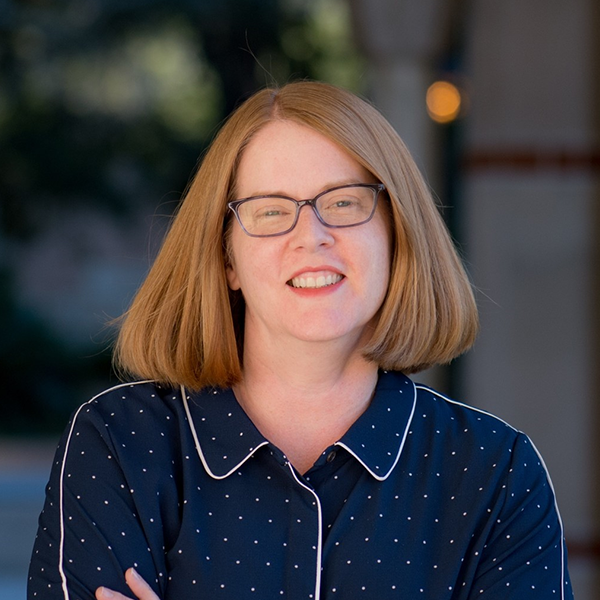As the new dean of undergraduates, Bridget Gorman is uniquely situated to oversee undergraduate curriculum, student life and academic advising. A medical sociologist, she looks for patterns that lead to disparities in health and wellbeing and then proposes solutions that will effect a positive outcome across diverse populations. This is not so different from her former role as magister of Will Rice College, where she spent the last seven years mentoring her students, identifying their unique struggles and talents and then preparing them to succeed in myriad ways. She also served as chair of the Department of Sociology and as a founding fellow of Rice’s Center for Teaching Excellence — roles which reflect her sincere passion for addressing the needs of the individual student.
You’ve been in a number of leadership positions at Rice. What have you learned about Rice students?
Our undergraduates are “all in.” They care strongly about the academic experience at Rice and seek out courses that are engaging, stimulating and challenging. They care about the residential college experience and maintaining a strong sense of community. They are passionate about Rice as a whole — leadership activities, sports, social issues. But I’ve also learned that each of our undergraduates has their own story, including their own strengths and challenges. Our role as faculty is to interact with students and get to know them so that we can help them to learn and grow.
The Vision for the Second Century, Second Decade (V2C2) calls for more inquiry-based learning and experiential learning opportunities. How are these teaching strategies important to Rice students?
At heart, both teaching methods focus on kindling a student’s curiosity and actively engaging them in the learning process.
Inquiry-based learning can be anything from a well-crafted discussion to a research project in a course. Rather than feeding students information, we seek to actively engage them in posing questions and researching solutions.
Experiential learning involves getting out of the classroom and practicing a real-world skill. This happens on class trips, in internships, externships, research projects, labs — the options are really limitless. To me, the biggest benefit of experiential work is gaining a true understanding of what you are taking on and making an informed choice about what you want to do long after you leave Rice.
How can all students have access to experiential opportunities?
One of our big challenges is to make internships, travel and research opportunities available to all students regardless of personal resources. The Center for Career Development, for example, provides students with financial assistance to do summer internships. For many years, the Department of Sociology has put aside money for students to do research projects the summer after their junior year as background for an honors thesis. We need permanent sources of funding so that all of our students can benefit from exceptional learning opportunities outside of the traditional classroom.
The V2C2 advocates that faculty be at the center of the student experience. How do you see the faculty’s role?
In many ways, our faculty already are at the center of the student experience and are engaging with students on all levels. We are teachers. The easiest and first way to engage is in the classroom. We are also scholars involved in the production of knowledge. Our job there is to engage students in research projects directly and be deliberate in making those projects happen. If students are interested in getting involved in research, there are lots of ways to accomplish that.
The other part is having faculty engaging in critical academic advising roles. We have faculty who are active associates in the colleges, and this is where a lot of the informal mentoring and advising occurs. There is a great deal of value in sitting around the lunch table with students where the conversation can range from the serious and the academic to the funny and inconsequential. I think that building up an even more robust associate program in the colleges is an essential part of encouraging productive relationships between faculty and students.
How will your career as a sociologist shape your work at dean of undergraduates?
I’m a medical sociologist. I care about health and well-being. I care about access, diversity and inclusion. I want to think about how we can make the student experience positive, supportive and transformative for everyone. “Everyone” is a key part of that. Our students are diverse and, not surprisingly, they have a wide range of needs. I want to promote academic success, but the student experience is about more than that. It’s social development, leadership development, emotional growth, all of it — packaged in with career planning and more, so that’s something I’ll spend the next several years thinking about and working on.




